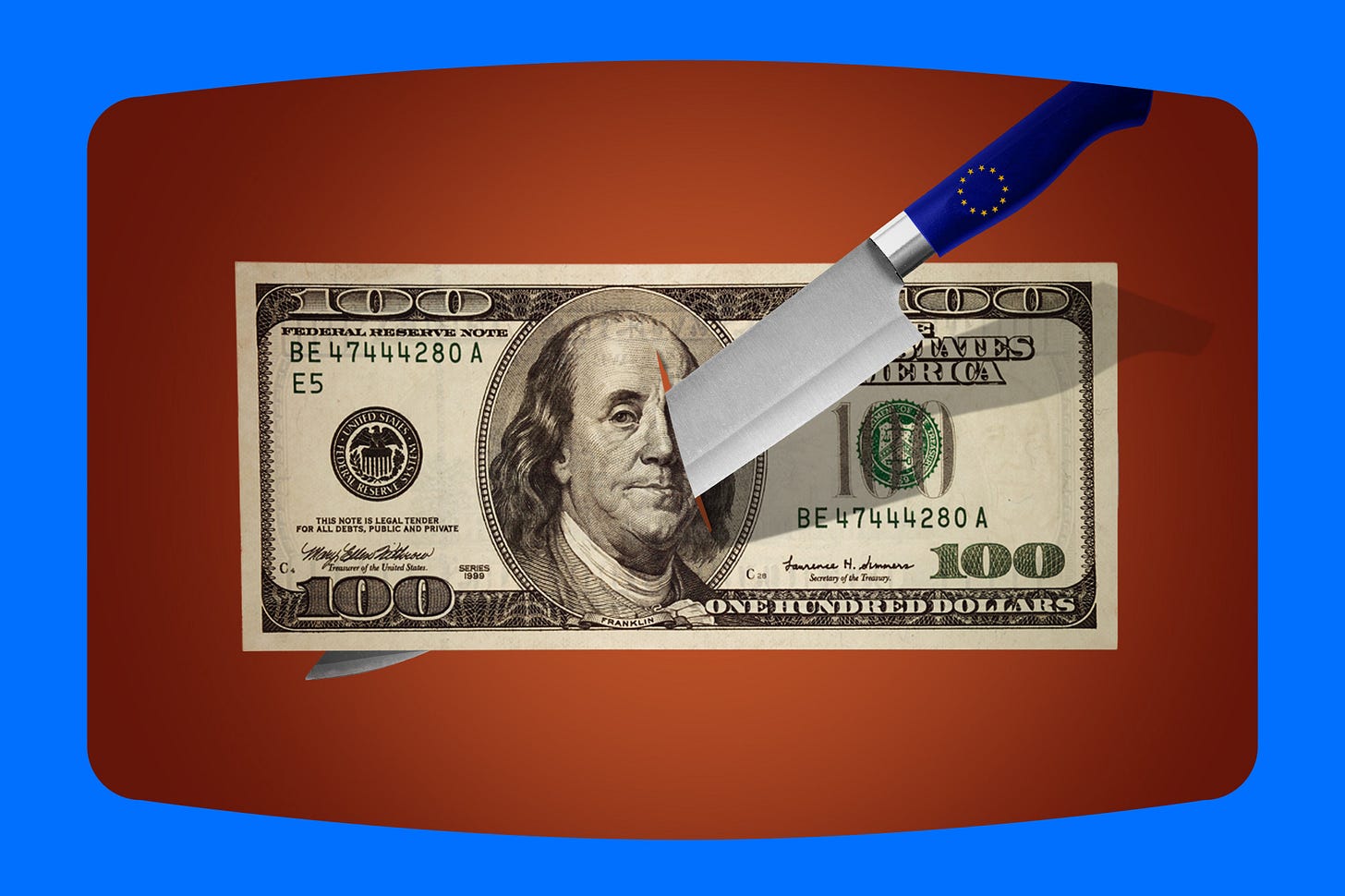'Sharpest Weapon': Europe Lays Plans to Hobble Trump-Era Hollywood
'Buy fewer Teslas and U.S. shows, and more Peugeots and European series!' rails one French producer as culture-as-strategy takes feverish hold
Manori Ravindran writes about int’l TV from London. She recently wrote about the U.K. company behind Netflix’s Adolescence and reported on European production alliances.
Europe is grinding back into work mode after the Easter holidays, and I’m packing to head to France — again.
I’ll be hitting Cannes in the south for TV drama festival Canneseries (yes, another one). It’s always fun to scope out the frenzied preparations for the film festival in May, but I’m mainly looking forward to mingling with producers during a particularly Euro-centric period for the international industry.
A few weeks ago, during Series Mania in Lille, I hinted at the anti-American hostilities rippling under the surface among some European producers. Now that we’ve had close to a month to digest Donald Trump’s America-first trade policies — notwithstanding the 90-day stay of execution on the proposed tariffs — I’m beginning to hear more about the projected impact on the industry, and producers’ “sharp elbows” strategy.
“Buy fewer Teslas and U.S. shows, and more Peugeots and European series!” shouted one French producer down the phone. It’s rare these days to get through a conversation with anyone from the continent without hearing of the mission to protect European culture.
But it’s not just talk: As I recently reported, there are at least four different drama funding alliances in place among European public and commercial broadcasters. Meanwhile, the EU-backed European Investment Fund last week committed €25 million (about $28.4 million) to a new equity fund created solely to support indie European producers.
Europe is beginning to “see culture as a very strategic industry,” French executive Romain Bessi tells me. Bessi is CEO of a collective called The Creatives, comprised of nine production companies — mostly European, but also one U.S.-based and one in Israel — that have made everything from Cannes favorites Triangle of Sadness and Waltz With Bashir to Israeli drama series When Heroes Fly and False Flag (both were adapted for the U.S. by Apple TV+). The group is fundraising to form a co-op-style model with shared ownership.
Is Bessi losing sleep over American protectionism? Hardly.
Europe’s ascendance, however, sits in stark contrast to the state of play in the U.K., where Trump’s trade showdown coincides with the government taking sudden — if belated — interest in the TV industry and its beleaguered broadcasters. (Case in point: In my recent interview with Warp Films, the British producers of Adolescence, they revealed they didn’t take the project to a single U.K. broadcaster because they knew none would be able to afford the series’ signature single-shot epidoses.)
Earlier this month, the Culture, Media and Sport Committee (a cross-party group of Members of Parliament) published a report recommending the government consider a streaming levy on all SVODs operating in the U.K. This would see the likes of Netflix, Amazon’s Prime Video, Apple TV+ and Disney+ investing 5 percent of their U.K. revenues into a cultural fund that supports British productions.
It’s not a novel concept. In France, a 20 percent streaming levy raised more than €1 billion ($1.05 billion) from the global streamers between 2021 and 2023. Italy imposes a 16 percent levy, and the new German Film Law has set a 1.8 percent to 2.5 percent levy on VOD services.
But streamers like Netflix were quick to push back on the U.K. proposal, and it turns out senior British TV execs and some high-profile drama producers aren’t fans of the levy model, either. “With everything going on with Trump’s tariffs, I don’t think the government will do anything to piss off Trump or the tech companies by introducing this levy, even though it already exists in Europe,” says one U.K. drama producer.
A number of producers are said to prefer the committee’s other recommendation: a new tax credit that helps low-to-mid budget shows get made. It’s become a thorny debate at a nervous moment in the industry and in global trade broadly. Today I break down:
The pros and cons of a streaming levy and who in the U.K. industry is taking which side
Who’s part of an all-star producers’ working group advising the industry and government on the issue
How Trump’s threatened tariffs could impact film and TV in the U.K. and Europe
How close ties between the British and American industries have created unique challenges for U.K. productions
The EU’s “sharpest weapon” against Trump tariffs that could hobble Hollywood
U.S. industry orgs’ recent challenge to current EU regulations protecting European productions, including levies in France, Italy and Germany
How it all could mean even more U.S. productions moving abroad




